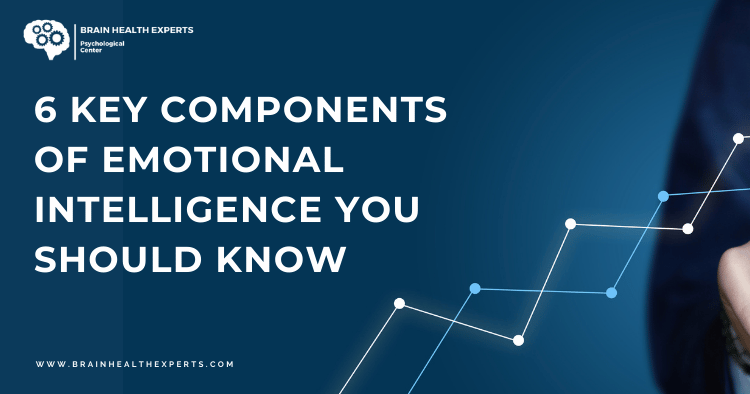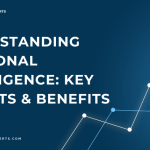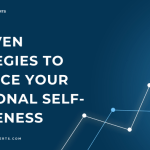Table of Contents
- What is Emotional Intelligence?
- Self-Awareness
- Self-Regulation
- Motivation
- Empathy
- Social Skills
- FAQs
- Conclusion
Emotional intelligence (EI) has become a buzzword in personal development, workplace dynamics, and relationships. It’s not just about being nice; it involves a profound understanding of emotions—both yours and those of others. In this article, we will explore the six key components of emotional intelligence to help you navigate your emotional landscape and improve your interactions.
What is Emotional Intelligence?
Emotional intelligence refers to the ability to recognize, understand, and manage our own emotions while also being aware of and influencing the emotions of others. According to psychologist Daniel Goleman, who popularized the concept, EI can significantly impact your professional success, relationships, and overall well-being. You can dive deeper into Daniel Goleman’s work on emotional intelligence here.
As we move into 2024 and beyond, the importance of emotional intelligence continues to grow, particularly in workplace environments. Organizations are increasingly prioritizing EI in hiring and training processes, recognizing that employees with high EI contribute to better teamwork, enhanced communication, and a more positive work culture.
Self-Awareness
Self-awareness is the cornerstone of emotional intelligence. It involves recognizing your emotions as they happen and understanding how they affect your thoughts and behavior. Individuals with high self-awareness can accurately assess their strengths and weaknesses.
Key Aspects of Self-Awareness:
- Emotional Recognition: Being conscious of your emotional state.
- Impact Awareness: Understanding how your emotions influence your actions and others around you.
- Self-Confidence: Having a strong sense of your self-worth and capabilities.
How to Improve Self-Awareness:
- Journaling: Reflect on daily experiences and emotions. For practical exercises, check out 10 positive thinking exercises to boost mental health.
- Mindfulness Practices: Engage in meditation or deep-breathing exercises.
- Seek Feedback: Ask trusted friends or colleagues for constructive criticism.
“Self-awareness is not just about being conscious of your emotions; it’s about understanding their impact on your life and relationships.”
Self-Regulation
Self-regulation is the ability to manage your emotions and impulses effectively. It’s not about suppressing emotions but rather about not letting them control your actions. This component is crucial for maintaining interpersonal relationships in both personal and professional settings.
Key Aspects of Self-Regulation:
- Emotional Control: The ability to pause and think before reacting.
- Adaptability: Adjusting your emotions to changing circumstances.
- Commitment to Values: Staying true to your values and ethics, even under pressure.
How to Enhance Self-Regulation:
- Practice Pause: Take a moment to breathe before responding to emotional triggers.
- Develop Coping Strategies: Find healthy outlets for stress, such as exercise or hobbies. Refer to 10 proven stress management techniques for daily relief.
- Set Goals: Establish clear personal and professional goals to guide your actions.
“Self-regulation is essential for fostering healthy relationships—both with ourselves and others.”
Motivation
Motivation in the context of emotional intelligence refers to an intrinsic drive to pursue goals with energy and persistence. It’s about being proactive and having a strong desire to achieve for the sake of achievement, rather than for external rewards.
Key Aspects of Motivation:
- Achievement Drive: A passion for work that goes beyond monetary rewards.
- Commitment: Dedication to personal and organizational goals.
- Optimism: Maintaining a positive outlook, even in the face of setbacks.
How to Boost Motivation:
- Set SMART Goals: Make your goals Specific, Measurable, Achievable, Relevant, and Time-bound.
- Celebrate Successes: Acknowledge your accomplishments, no matter how small.
- Surround Yourself with Positivity: Engage with people who inspire and motivate you. Explore 10 powerful techniques to cultivate a positive mindset.
“Motivation is not just about achieving success; it’s about the journey and the joy of striving toward your goals.”
Empathy
Empathy is the ability to understand and share the feelings of others. It’s more than just sympathy; it involves putting yourself in someone else’s shoes and genuinely caring about their emotional experience.
Key Aspects of Empathy:
- Cognitive Empathy: Understanding another person’s perspective.
- Emotional Empathy: Feeling what another person feels.
- Compassionate Empathy: Taking action to help someone in need.
How to Cultivate Empathy:
- Active Listening: Focus fully on the speaker and acknowledge their feelings.
- Practice Perspective-Taking: Consider situations from other people’s viewpoints.
- Engage in Community Service: Helping others can enhance your empathy. Check out 10 ways positive thinking transforms your relationships for more insights.
“Empathy is the bridge that connects us to others; it’s what makes us human.”
Social Skills
Social skills encompass the abilities needed to interact positively and effectively with others. People with strong social skills can navigate social complexities, lead teams, and foster positive relationships.
Key Aspects of Social Skills:
- Communication Skills: The ability to convey information clearly and effectively.
- Conflict Resolution: Navigating disagreements with tact and diplomacy.
- Interpersonal Skills: Building rapport and establishing trust with others.
How to Improve Social Skills:
- Join Groups: Participate in clubs or organizations that interest you.
- Practice Networking: Attend social events to meet new people and practice conversation skills.
- Observe Others: Learn from individuals who excel in social interactions, possibly through workshops like top 7 stress management workshops 2024.
“Strong social skills are essential for creating lasting connections and thriving in both personal and professional environments.”
FAQs
What is the importance of emotional intelligence in the workplace?
Emotional intelligence plays a crucial role in workplace dynamics. High EI leads to better teamwork, improved communication, and enhanced leadership abilities. Employees with strong emotional intelligence are often more adaptable and resilient, making them valuable assets to any organization.
Can emotional intelligence be developed?
Absolutely! Emotional intelligence is not fixed; it can be developed and enhanced over time through self-reflection, practice, and education. Engaging in activities that promote self-awareness, empathy, and social skills can significantly improve your EI.
How can I assess my emotional intelligence?
Various online assessments and quizzes can give you insights into your emotional intelligence. However, seeking feedback from trusted friends or colleagues can provide more personalized insights. Consider reading resources like the Mayer-Salovey-Caruso Emotional Intelligence Test for a more formal evaluation.
Conclusion
Understanding and developing emotional intelligence is an ongoing journey that can profoundly impact your personal and professional life. By focusing on the six key components—self-awareness, self-regulation, motivation, empathy, and social skills—you can enhance your emotional intelligence and improve your relationships with others. Remember, the path to emotional intelligence is a rewarding one, filled with opportunities for growth, connection, and fulfillment.
Feel free to share your thoughts or experiences regarding emotional intelligence in the comments below! Also, look for more insights on nurturing a positive mindset in our articles, such as 10 ways positive thinking boosts emotional well-being.





